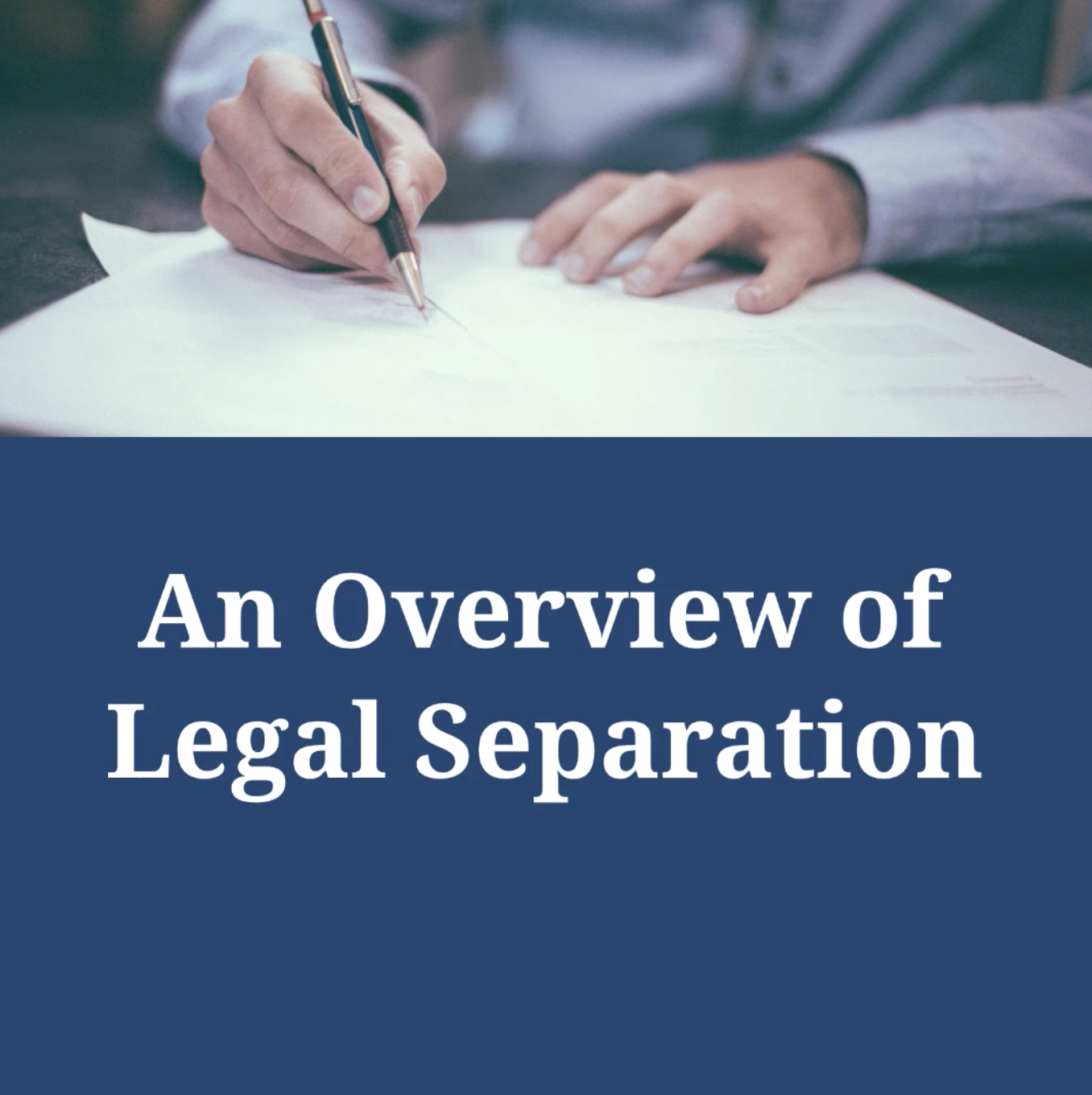What You Need to Know about Legal Separation
Many couples consider a marital separation when they are thinking about divorce but aren’t quite sure they are ready to make that big, final decision. Sometimes living apart from one another helps a couple figure out if they want to make the split permanent or not. Similar to a divorce, a legal separation is a type of case that legally changes the structure of your marriage. We are sharing the ins and outs of what you need to know about legal separation in San Diego, California.
The Definition of Legal Separation in California
In California, filing for legal separation is similar to the divorce process. All assets and debts are divided. Child and spousal support are established by court order. Even a Judgment of Legal Separation will be entered at some point. The main difference between a legal separation and divorce is that the involved parties will not terminate their marital status. Even after a Judgment of Legal Separation is entered by the court, neither spouse may remarry or enter a domestic partnership. This process allows each person to live separate lives without legally ending their marital status . In most situations, couples will decide to live in separate homes, but sometimes the parties may agree to continue living in the same house. This is a personal decision.
Reasons for Legal Separation
Similar to a divorce, either party can obtain a legal separation without stating a specific reason for it. In California, the concept of “no fault” applies to both legal divorces and separations. Basically, you can decide to separate from your spouse due to irreconcilable differences, which means that the marriage has failed for one reason or another and one or both spouses agree that it cannot be salvaged. In California, you do not have to prove fault to obtain a legal separation or divorce like you do in some other states.
Requirements for Legal Separation
A legal separation in California does not have any residency requirements, unlike a divorce. Luckily, you do not need to be a resident of the state or your county of filing for any period of time, so you do not need to wait to file for a separation. Some couples who are new to living in California and want to get a divorce, might start with a legal separation in order to begin the divorce process without having to wait for months.
Another difference between a divorce and a separation is there is not a 6-month waiting period for legal separation like there is in a divorce. However, the overall process of legally separating from your spouse is very similar to the divorce process. The petitioning spouse must file for legal separation and the responding spouse must file a response, or the matter will proceed by default.
Advantages of Legal Separation
Many couples choose to get legally separated instead of divorced because it is not definite or permanent. This process allows couples to take the time they need to confirm that they do in fact want to end their marriage with a divorce, or they may realize that they can get past their marital issues and decide that their marriage is salvageable. A legal separation also allows people time to look into the implications of divorce and make sure they are prepared before actually moving forward with the legal process. Also, some people may not believe in divorce due to religious or personal reasons, so getting legally separated from their spouse is a viable alternative. Another benefit of getting separated instead of divorced is that one or both parties can keep their married legal status for immigration or healthcare purposes. Keep in mind, however, that if one party decides to file for divorce (and not a legal separation), the court must move forward with the divorce request regardless of what the other party desires.
Legal Separation with Children
Going through a legal separation with children is handled similarly as going through a divorce, or dissolution of marriage. However, no parent possesses a legal right to deny visitation to the other parent when they are separated, unless a family court issues a child custody order. Either parent can file a request in a legal separation for child custody and support. The court may order one parent as the custodial parent and the other as a non-custodial parent with visitation rights. This is the same process as in a divorce proceeding.
Overall, married couples may opt for a legal separation over a dissolution of marriage, or divorce, for many different reasons. If you have any questions about the process or implications of getting legally separated or divorced, don’t hesitate to give us a call! We are experienced San Diego Family Law Attorneys and we would be happy to setup your free consultation and look at your situation to give you the best advice for your future.



